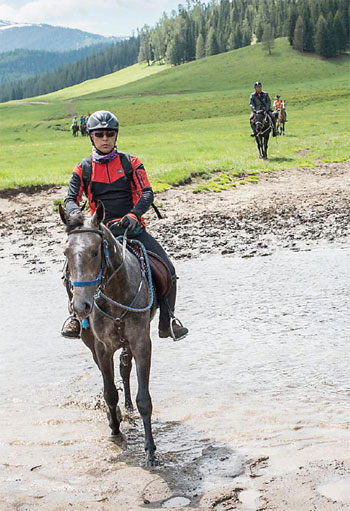Challenges of the long-distance rider
Updated: 2015-09-04 08:16
By Yang Feiyue(China Daily)
|
||||||||
Chinese equestrian competitors need to be willing to pack their tack and head overseas if they are to attain the highest skills. Yang Feiyue reports.
Wherever big equestrian competitions are held, Cheng Zhaoyi is willing to pack saddles, bridles and other tack and ride off into the distance, and he is prepared to pay through the nose for the pleasure.
For a trip to France last month, Cheng forked out 100,000 yuan ($15,700), and in return was credited with 13th place in a 120-kilometer endurance competition organized by the International Equestrian Federation. Those costs covered renting horses and one week of training before the competition proper began.
Cheng, from Urumqi, in the Xinjiang Uygur autonomous region, is one of the few horse riders in China who has ventured overseas to improve his already advanced equestrian skills and rack up international competition credits.
"There aren't many FEI competitions in China," Cheng says, referring to the federation's French acronym.
"Some domestic competitions are not very standard, and there are doubts about them.
"I learned advanced control of horses and logistics systems for horse maintenance by joining training and games abroad.
"I'm using these matches to earn match points so I can work my way up to world-class competitions, such as the FEI Championships and the FEI World Equestrian Games."
In November 2013, he also went to France to compete in an FEI endurance event slightly shorter than the one he competed in this year and was 16th. The events are given star ratings according to their difficulty - the more stars the greater the difficulty. The competition he took part in two years ago was a one-star event, and the competition he took part in last month was two-stars.
Cheng plans to take part in a two-star FEI endurance competition (120-139 km in one day or between 70 km and 89 km a day over two days) in France in November.
He aims to qualify to compete in a three-star endurance match (140-160 km in one day or 90-100 km a day over two days, or 70-80 km a day over three days or more) soon. His ultimate goal is to attend the FEI World Equestrian Games, which are held every four years, in Montreal in 2018.
Ten years or so ago some Chinese riders went overseas for competitions in which they could accrue points so they could qualify for the Olympic Games held in Beijing in 2008, says Wutzala, editor-in-chief of the Chinese equestrian website Horse.org.cn.
There are now 10 Chinese riders who have accrued international race points, six from the mainland and four from Hong Kong, he says.
The FEI stipulates that contestants have to start from lower-level competitions and build up points to qualify for higher-level ones.
"Some professional Chinese teams used to have horses maintained abroad and hire foreign trainers," he says.
"But it is very rare now because costs were exorbitant, and some crooked dealings were going on with the purchase of horses."
China's equestrian industry is generally rated as only average in Asia, which means the country's riders who want to improve their skills are more or less obliged to compete in events overseas.
Chinese riders need to pick and understand horses on their own and participate in training when throwing their hats into the ring for foreign competitions, Wutzala says.
"(The whole process) enables them to learn more about match strategies and become better acquainted with competition rules and skills."
At the same time, overseas experience offers an insight into how horses are maintained and trained in places where horsemanship programs are well developed. That includes learning about horse nutrition and top-class veterinarian care.
Chinese riders are apt to overlook small but important details - for example, erroneously wearing riding boosts instead of sports shoes in endurance matches, Wutzala says.
Generally, those with overseas-competition experience are likely to have the upper hand over those who have had none, he says. However, not all riders heading overseas do so with competition ambitions in mind. Some simply do it for the pleasure.
"Overseas horse racing has become something some Chinese tourists build their travel itineraries around," Wutzala says.
In one instance in 2012, 30 horse riders formed a group and attended an endurance competition in Hungary.
Incentives such as visa restrictions being eased are also drawing Chinese riders overseas.
Many European countries offer them one - or two-year visas if competition organizers issue invitations, Wutzala says.
Of course, there are benefits in this for the host countries, too. France, for example, has practically gone into the business of exporting its standardized equestrian management to China, and at the same time is promoting the sale of equestrian equipment, he says.
Competing internationally demands the highest character and skills of competitors, says Jeremy Michaels, training and equine director of the Warwickshire-based British Horse Society.
At the Equuleus International Riding Club in Beijing, Michaels has been training Chinese horsemanship coaches and private horse owners in the art of passing on their show jumping skills. In doing so, last year he helped the club become the first British Horse Society-approved training and examination center on the mainland.
"A rider needs talent, a fantastic horse, dedication, a good support team, focus, professionalism and luck," Michaels says.
Depending on the discipline - show jumping, dressage and cross-country - they are focusing on, they will need to have a trustworthy coach who has confidence in them, has access to the right facilities and hopefully a sponsor, because competing at the top level can be very expensive, Michaels says.
"From my experience of training Chinese coaches and competitors, they love their show jumping, are dedicated, hardworking and many are very talented."
Some have been fortunate enough to ride in Europe and North America, where they have received invaluable training and had competition experience, he says.
"The area in which they most need to improve is exposure to competing against foreign riders over larger jumping tracks."
They would also benefit from the services of foreign trainers coming to China, he says.
Although finances can be a high hurdle for some would-be equestrian competitors, age seems to be largely irrelevant.
"Not everyone has to start riding young to be a top rider. There are many cases where people have started riding in their teens or 20s, have a natural feel for riding and then (go on) to be successful internationally."
Winning is wonderful, but it should not come at any cost, Michaels says. The best riders in the world are experts not just in riding, but in caring for and managing horses, which underlines the fact that to be successful a rider needs to take a holistic view of horses and training, he says.
Cheng Zhaoyi says he practices endurance horsemanship twice a week, each session lasting for seven hours.
"The most important thing is for the horse and the rider to work together. That's because the rider needs to know how to do particular things in a way that relieves pressure on the horse, thus reducing its physical exertion."
Contact the writer at yangfeiyue@chinadaily.com.cn
Luan Shu contributed to the story.
|
Cheng Zhaoyi participates in an endurance competition in France. Cheng is one of the few riders in China who has ventured overseas and earned international competition credits.Provided To China Daily |
(China Daily 09/04/2015 page18)
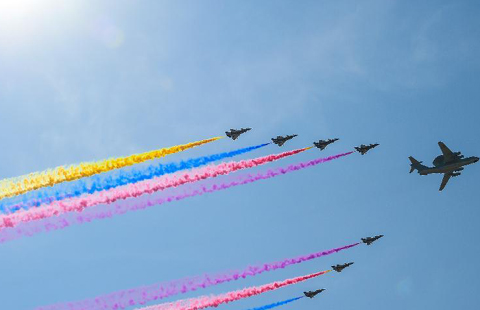
 Military helicopters write number 70 high in the sky
Military helicopters write number 70 high in the sky
 Salute to veterans
Salute to veterans
 Xi attends the ceremony with other leaders
Xi attends the ceremony with other leaders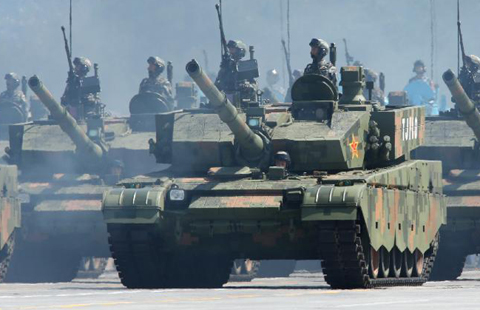
 Armored vehicles roll down the parade in huge roar
Armored vehicles roll down the parade in huge roar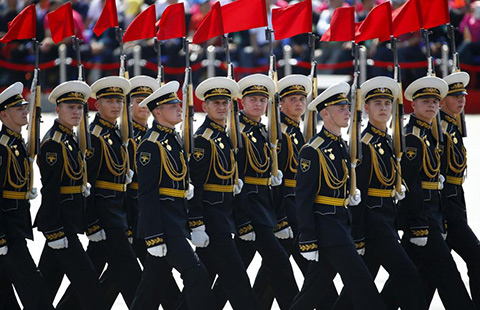
 Foreign troops celebrate with Chinese comrades
Foreign troops celebrate with Chinese comrades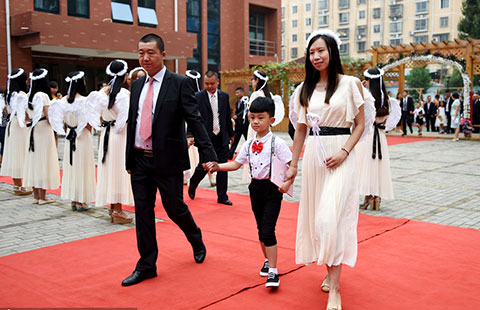
 Red carpet ceremony for first grade kids
Red carpet ceremony for first grade kids
 Kashgar old city in Xinjiang is well preserved
Kashgar old city in Xinjiang is well preserved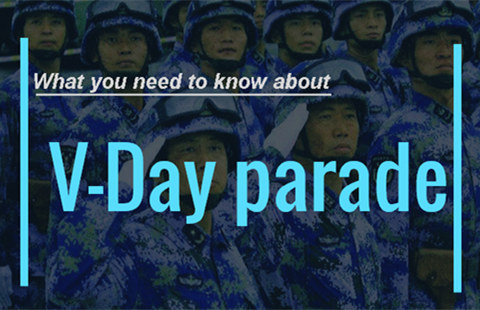
 Infographic: Symbols behind numbers
Infographic: Symbols behind numbers
Most Viewed
Editor's Picks

|

|

|

|

|

|
Today's Top News
China to cut troops by 300,000: President Xi
On path to peace: Cui
15 US cities make world’s ‘least friendly’ list while China places 3
Xi heralds V-Day with troop cuts at parade
China holds parade, vows peace on war anniversary
Peking Opera: Star power
IMF: China can transition
Xi urges cross-Straits honoring of history
US Weekly

|

|
